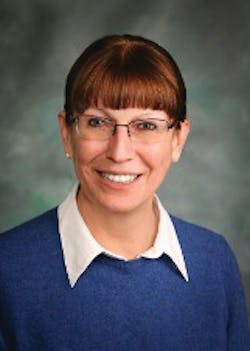Callout: When a corporate flight department pilot or mechanic is questioned by an Aviation Safety Inspector (ASI), it behooves that individual to know what the agency can demand and what it can “request.”
Corporate flight departments often institute much higher standards than those required by parts 43 (maintenance), 91 (general operating), and 145 (repair stations). Ensuring continued airworthiness for businesses and executives cannot be based upon minimum standards; there is too much at risk. A company’s prosperity comes from satisfying clients and getting executives and customers to events and meetings on time, every time. Therefore, corporations demand more stringent quality control and assurance elements than do the regulations set forth in 14 Code of Federal Regulations (CFR).
Companies setting higher standards does not equate to the Federal Aviation Administration (FAA) enforcing those requirements. It is one thing to institute more safety measures than those required by the regulations; it is another thing altogether to pay fines to the government for failure to meet those higher standards. Thus, when a corporate flight department pilot or mechanic is questioned by an Aviation Safety Inspector (ASI), it behooves that individual to know what the agency can demand and what it can “request.”
Quality assurance: voluntary disclosure
For example, the company may have a robust quality assurance system; that does not mean all the elements need to be incorporated into a Part 145 certificate’s manual(s). Since the Part 91 operation does not have the ability to self-disclose potential violations of the regulations, the information from the Part 145 system can be used against the company’s individual certificate holders. Therefore, the company should seek to ensure all information from its quality assurance system is treated as a voluntary disclosure under the Part 145 certificate. Additionally, the company’s individual certificate holders (both pilots and mechanics) must take full advantage of the Aviation Safety Reporting Program under Advisory Circular 00-46.
Multiple hats
However, even more importantly, the individual certificate holders must understand they are wearing multiple hats. While the pilot may not be the owner of the aircraft, s/he is definitely going to be considered the operator for FAA compliance purposes. A mechanic working for the company will be exercising the privileges of the Part 65 (airmen other than flight crew) certificate sometimes, but not all the time. That same person may be a supervisor for the company’s repair station. A qualification for the supervisory position is that the individual is certificated. However, the repair station is performing the work and issuing the approval for return to service. Knowing what hat you are wearing when specific tasks or operations are being performed will ensure protection against unnecessary questions and confusion with the FAA.
The individual certificate holders are usually the only ones in a corporation that know anything about aviation safety regulations. Most executives assume that the standards set by the company can be enforced by the agency. Therefore, it is important for the certificate holders to recognize the difference between the company’s standards and those imposed by the government. It is all well and good to exceed the FAA’s minimum standards; your job depends upon understanding the company’s directives. Knowing the distinction between what the FAA can demand and what it can request will help stop legal action from the agency against individuals or the company.
Sarah MacLeod is executive director of the Aeronautical Repair Station Association (ARSA), an organization she helped found more than 25 years ago. For more information visit www.arsa.org.
About the Author

